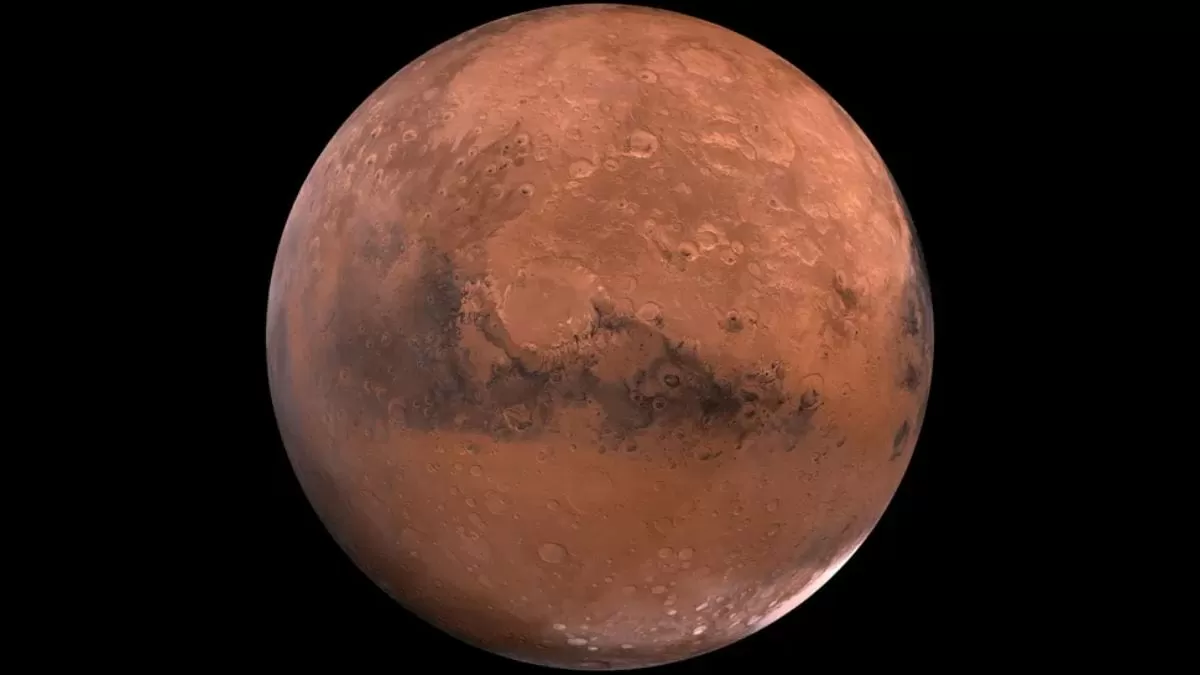Scientists have long been fascinated by the possibility of life on Mars, our neighboring planet in the solar system. For years, the prevailing belief was that Mars was a cold and dry planet, with a barren landscape and no signs of water. However, recent research has challenged this notion, revealing that early Mars may have been surprisingly wet and hospitable to life.
A team of scientists from the University of Texas at Austin and the University of California, Berkeley have uncovered compelling evidence that suggests early Mars was once home to extensive networks of lakes and river basins. This discovery has challenged long-held views of a predominantly cold and icy ancient Mars, and has opened up new possibilities for the planet’s past and potential for life.
The researchers used data from NASA’s Mars Reconnaissance Orbiter (MRO) to study the geological features of the planet’s surface. They found evidence of ancient river channels, lake deposits, and deltas, all of which point to a wet and active hydrological system on early Mars. This system was likely shaped by rainfall and snowfall, similar to Earth’s water cycle.
This new evidence has sparked excitement among the scientific community, as it challenges the current understanding of Mars’ climate and history. For years, scientists have struggled to explain how Mars could have sustained liquid water on its surface, given its thin atmosphere and cold temperatures. But this new research suggests that early Mars may have had a much more Earth-like climate, with a thicker atmosphere and warmer temperatures.
The discovery of these ancient water systems on Mars has also raised questions about the potential for life on the planet. Water is a key ingredient for life as we know it, and the presence of liquid water on early Mars could have provided a suitable environment for microbial life to thrive. This has reignited the debate about the possibility of past or even present life on Mars.
While the exact timeline of when these water systems existed on Mars is still unclear, the researchers estimate that they were active around 3.7 billion years ago. This is a crucial time in the planet’s history, as it is believed that Mars was transitioning from a warm and wet planet to the cold and dry one we know today.
The discovery of these ancient water systems on Mars also has implications for future exploration and potential colonization of the planet. The presence of water means that early Mars may have been a more habitable place for humans, and could potentially support future human missions. It also opens up the possibility of using these water resources for sustaining life and supporting human settlements on the planet.
However, there are still many unanswered questions and challenges that need to be addressed. For instance, current climate models struggle to explain how Mars could have sustained liquid water for extended periods of time. The planet’s thin atmosphere and lack of a global magnetic field make it difficult to retain water on its surface. Scientists will need to continue studying and analyzing the data to better understand the conditions that allowed for these water systems to exist on early Mars.
Despite these challenges, the discovery of extensive water systems on early Mars is a groundbreaking development in our understanding of the planet. It challenges long-held beliefs and opens up new possibilities for the planet’s past and future. It also highlights the importance of continued exploration and research on Mars, as we continue to unravel the mysteries of our neighboring planet.
In conclusion, the recent discovery of extensive networks of lakes and river basins on early Mars has challenged our understanding of the planet’s climate and history. It has also raised questions about the potential for life on the planet and has implications for future exploration and potential colonization. While there are still many unanswered questions, this discovery has opened up new possibilities and has reignited our curiosity about the Red Planet. As we continue to study and explore Mars, we may uncover even more surprises and insights into the planet’s past and potential for life.

